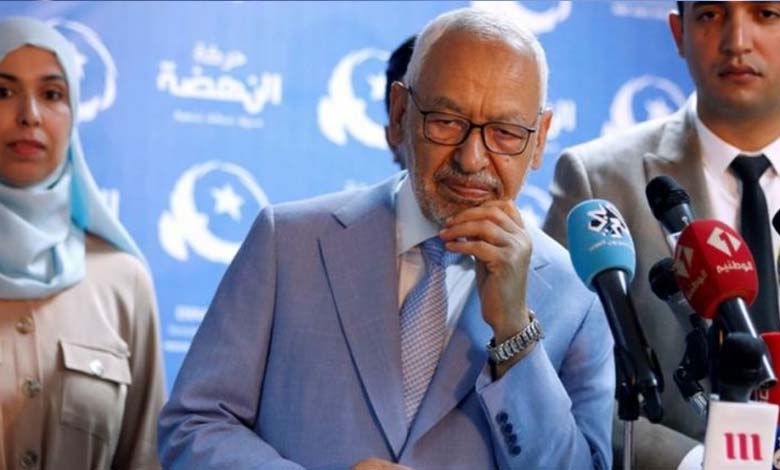Tunisian analyst: Internal conflicts have deepened significantly within the Ennahdha Movement

While Tunisia’s Muslim Brotherhood’s Ennahdha Movement struggles to repair divisions within it amid the push by dissidents to present a new political vision, and despite the legacy of Rached Ghannouchi, who has led the movement since its founding in 1972, the bleeding of defections is increasing inside the movement, the latest of which was the announcement by Mohamed Goumani, a leading figure in Ennahda and former chairman of the party’s political crisis management committee, in which he acknowledged the existence of a “contrast with the prevailing political orientation in the leadership of the movement”.
Turbulent conditions
In a blog post, Goumani said that he no longer finds agreement with Ennahdha’s approach to the general conditions of the country, the post-25 July 2021 course, and the conditions of the opposition and the political class in general, explaining that he will no longer be able to respond to the request to participate as a leading figure in Ennahdha.
Goumani is one of Ennahdha’s most active leaders and a fierce defender of its political programs during its election campaigns and during its leadership’s many criticisms of the political scene in Tunisia.
Major crises
Oussama Aouidet, a Tunisian political analyst and leader of the Tunisian People’s Movement, says: Since Ennahdha’s exit from power, its president, Rached Ghannouchi, has been accused of involvement in corruption and terrorism files, stressing that the exceptional measures in July 2021 deepened the differences in the Ennahda movement, which erupted between two parts: one of them is loyal to its president, Rached. Ghannouchi, who in recent years held the presidency of Parliament, whose work was suspended by Tunisian President Kais Saied and then permanently dissolved after frozen deputies held a virtual meeting, and the second part demanded that Ghannouchi not run again to head the movement.
He added: A stormy split movement hit the Brotherhood’s Ennahdha movement in Tunisia, on the impact of sharp differences and divisions between its leaders that reached a climax, pointing out that among the reasons is the failure in internal reform and the isolation the movement has reached, as the Tunisian “Ennahdha” movement is facing the Brotherhood at this time. One of the largest, most complex and difficult crises since its inception.












